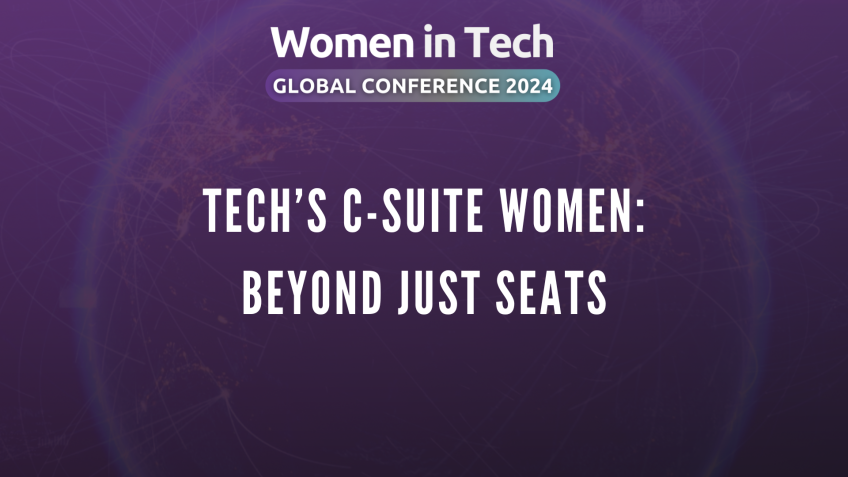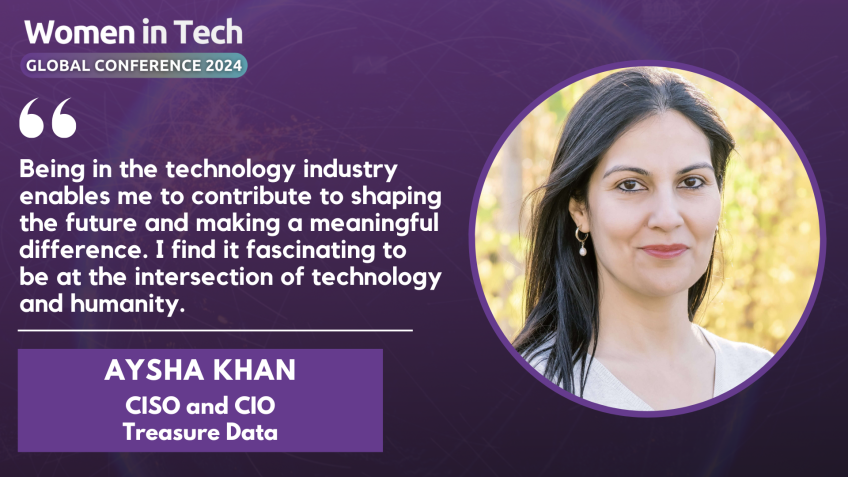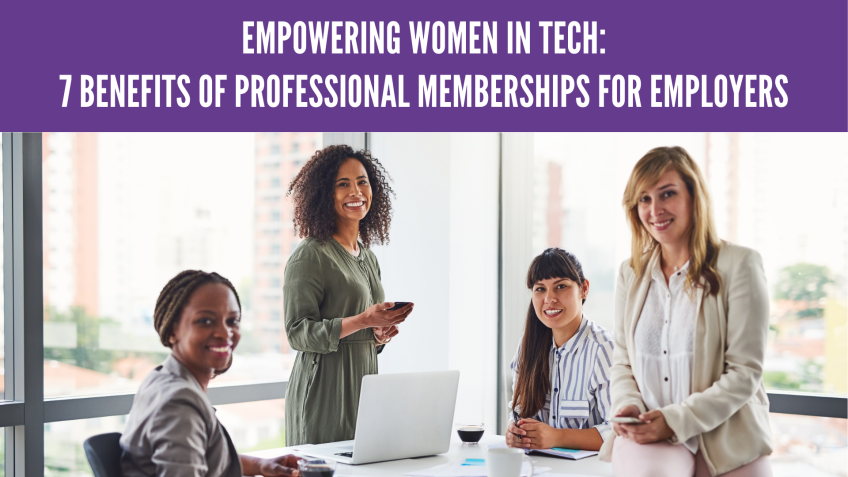Nitasha Chopra - So, you are now a leader ! Now What ? An inclusive and practical perspective on growing as leaders
Leadership Mindset: The Power of Personal Growth
Welcome to the exploration of a vital topic: the leadership mindset. I applaud you for dedicating the time to invest in your personal development and growth, a critical aspect of becoming a capable and inspiring leader.
About Natasha Chopra
My name is Natasha Chopra, the chief of staff and Director of Global Strategy in the Internet of Things Group at Intel Corporation. Having honed my craft as a technologist for over 16 years, I've had the privilege of working with acclaimed software companies such as Microsoft and VM Ware, bringing innovative solutions to the market.
Today, I am intricately involved in leading an organization that generates a whopping $4 billion revenue for the Internet of Things segment. I am also a champion of inclusion and a thrill-seeker in the sublime sphere of life as a mother of two young boys.
The Fantastic Four of Leadership
Having limited time together, it’s essential to focus on the most impactful leadership aspects. I’ve decided to label these the 'Fantastic Four'- these are powerful principles applicable to leaders at all levels and crucial to my leadership journey.
Believe in Yourself: Fantastic One
Leadership is not limited to titles; it’s a mindset. Believe that you are enough before anyone else does. Visualize your success, your leadership and your impact, fully understanding that your leadership capabilities are a blend of all your past experiences.
As an example, I share my personal story of how my leadership qualities were evident during my childhood obsession with the United Nations. This passion drove me to fundraise and engage in active dialogues about the UN's role. This leadership was inherent even before I referred to myself as a leader during a team huddle at Microsoft in my early twenties. That experience transformed my self-image, leading to broader opportunities and the inauguration of a journey of inspiring other leaders.
People-First Approach: Fantastic Two
Leaders prioritize their people, building cultures that foster care and consideration. Putting people first was a massive part of my leadership approach during the troubling times of the pandemic. My leadership team and I focused on:
- Work-life balance: We passionately advocated for and modeled work-life balance, acknowledging our team members' dual commitments to their work and families.
- Transparency: Keeping our team informed aided in building trust within the organization.
- Connection: We took the time to meet with our global team regularly, discussing key issues leading to a strengthened connection.
- Vulnerability: Showcasing vulnerability as a leader can be daunting, but it facilitates trust, which in return fosters risks, the sharing of mistakes, and the collective willingness to stretch one's capabilities.
Champion Inclusivity: Fantastic Three
Innovation is powered by diversity. Varying racial, cultural, ethnic backgrounds, and experiences shape our diverse thinking, ultimately fostering a hotbed for innovative and unique problem-solving solutions.
One of my early leadership experiences at a corporate level made me realize the importance of inclusive leadership. The feeling of having left voices unheard made me champion inclusivity with a resolute passion, leading to a culture that would last forever.
Compete with Yourself: Fantastic Four
Competing against yourself is about improving daily. I like to navigate this principle by giving myself permission to fail and fail fast, being kind to myself, focusing on my strengths, and building a ‘Board of Directors’ - a team of unbiased guides, mentors and champions rooting for success.
To conclude, in your leadership journey, I urge you to embody these fantastic four principles. Do not hesitate to connect with me on LinkedIn as we continue to explore and expand our leadership mindset journey.
Video Transcription
Good afternoon and thank you for joining the leadership mindset discussion today.As I kick off these talks, I always like to applaud the attendees on making the time to focus on their own development and growth consistently trying to learn to evolve and to be better is a critical leadership mindset. So thank you and great to see you all. My name is Natasha Chopra. I am the chief of staff and Director of Global Strategy in the Internet of Things Group at Intel Corporation. I have over 16 years of experience as a technologist, but I have worked with some of the tough software companies in the world like Microsoft and VM Ware to bring new innovative solutions to market. I'm extremely passionate about building new businesses and initiatives and in one way or another, I always find a way to ride the wave of the newest technologies, products and solutions. Today, I run a global organization that's responsible for delivering the product portfolio that drives a $4 billion revenue for the Internet of Things segment. I am a fierce champion of inclusion and a thrill seeker and no, I don't mean skydiving or something fancy like that.
I'm a mom of two young boys. So take that uh skydivers. So we have 20 minutes together and I wanted to make sure these 20 minutes together are the power. 20. They are memorable and fun. So let's start our discussion today by sharing a visual that I love. Thanks to time for sharing the next 20 leadership for 2021. I could not contain my excitement and the diversity in this list, the diversity of gender, race professions, ethnicities. As I was reading the details of some of these leaders, the diversity of their thought and the journeys that they took to get where they are is even more inspiring. They left me in awe and very hopeful to see how the next generation of leaders will transform our lives. And hopefully you all believe that you have what it takes to be next on the list during this power 20 I promise to leave you with few ideas that will get you thinking and to simplify these based on the short time we have together, I've decided to call them fantastic four by fantastic four because they're simple, effective to communicate and they're applicable to leaders of all levels.
And in these 20 minutes, I chose to prioritize these four because I felt they had the most influence on my development and my own personal leadership training. And I do hope that our discussion continues a lot longer than the power. 20. I would love to hear from you and to learn. So please connect with me on linkedin and let's continue the dialogue. Fantastic one. No one believes you until you do believe that leadership is not limited to those with titles. It's a mindset believe that you are enough before anyone else believes you have to believe in yourself. You have to visualize your success, visualize your leadership and visualize your impact. And most importantly, believe that the leadership that you carry is a combination of all your experiences throughout your entire life. And for most of us that leadership begins at childhood. And here's my story. I was an obsessed kid with the United Nations and I was on a quest of single handedly supporting the various United Nations organizations. I sold flag pins to raise money, convinced my dad and some of his coworkers to help with a fundraiser to support the UN I engaged in an active dialogue with pretty much anyone who would be willing to listen to me from the bus driver to the grocery store clerk.
These discussions were always focused on the role that the United Nations played in our current ecosystem and the impact it had on the underprivileged countries. The point is my leadership was visible as an eager fourth grader who believed in the United Nation with a passion, but no one had told me to believe in myself as a leader. Yet fast forward 15 years, I was at Microsoft in a team huddled, representing Intel and we had to reach a plan of faction. I was the youngest and the only female in the room I committed to the team, a plan of faction. And I told them that as the Intel lead and the Intel leader, they have my green light. And that was the very first time in, in my very early twenties that I had out loud in a room full of mostly strangers referred to myself as a leader. And it felt good. It felt more than good. I felt like a long time coming. I felt like it was a long time coming. And it changed my perspective on myself. It changed the choices I made the confidence I carried the opportunities I pursued and the leaders that I helped to grow instead of competing with my peers, I started creating highly visible opportunities for them because once I believed in myself as a leader, I became one fantastic, two people first, always leaders put people first and they build people focused cultures and genuinely care about their people.
It is a great responsibility that is both awesome and humbling and to be responsible for the growth and prosperity of your people. I witnessed one of the most tangible and impactful examples of this people first approached last year during the pandemic that turned our world upside down, we had to deliver the aggressive business results that we committed to without skipping a beat. And that meant architecting, developing and validating hardware and software platforms. With some of the, the the team could not physically touch the hardware. This was a challenge of an unprecedented nature and it posed a tremendous amount of responsibility and, and pressure on all of us in this crisis mode. My leadership team and I focused on putting our people first. And here are some of the approaches that we took that worked for us. During the pandemic. We focused on work life balance. We advocated fiercely and role model, work life balance. We worked hours that fit the needs of our young Children and aging parents. There was not a single meeting where Children and pets did not join us. We focused on the fact that our team members have responsibilities towards execution and commitments at work as well as their families.
And we created an environment in which they had the flexibility to manage their time by realizing the person as a whole and allowing them to have the space and the time to succeed. Our teams rose to the challenge to drive and deliver innovation at an exceptional way. We were very transparent in good times and in bad times and everything in between. By being transparent, we knew that we would be able to create an environment of trust amongst our people. And we shared information as it was available to us. We connected with our team. We took the time to meet with our global team. To listen to their concerns and take actions to help. We made sure that as leaders, we were connecting every week in small sessions of groups that work together so that we can understand their collective challenges. We had these discussions with nothing on the agenda. I mean, imagine walking into a meeting that just says connect sessions, nothing on the agenda. They helped us connect with the team so they can share what's on their mind and we could share what's on ours. And it was awkward in the beginning. But as these sessions grew with time, it became a place for us all to be and to share. And lastly, how are you feeling? God, I said the feeling word. Yes and showing vulnerability. This one for me personally has always been a hard one. And I think as women leaders, we are always battling a perception. We are too emotional or too cold. Really. It's that simple, a very complex human emotion, compressing to do just two.
When it comes to women at work. Our perception as women can also be either we're too harsh or gentle, too loud and too soft. And sometimes it becomes this concept of twos and buts and everything in between as I call them, she's too good but loud. She has experiences but likes the voice and it goes on and on. We have all heard it so much and yet in between all the ifs and the buts we have to find a way to proudly exist as a genuine self while continuing to be vulnerable. And as leaders, when we share our vulnerability, we bring others along on this journey with us, we build trust and understanding that has a tremendous impact on the outcomes we have. Because when there's trust, people take risk, they share mistakes and they're willing to go the extra mile or two. So yes, vulnerability can be intimidating as a leader. I'm with you on that one, but it leads to trust and I am personally working very hard at ensuring I can share my vulnerabilities openly and proudly. Hence, leaders focus on the people and people will focus on innovation, creativity, delivering results and impact the impact of this people.
First approach that we took last year was shown in some of the the official survey results we got in culture, belonging, inclusion and trust where we were over 10% in a 12 month time period in a pandemic year. We also delivered the results we committed to that our customers are still counting on fantastic. Three. Innovation is fueled by the power of difference for most rooms that I've ever walked into. There's one thing in common with the people in the room, I am different just like everyone else. That is the universal truth that we are all different. And I find these differences to be our superpowers, differences are not racial or cultural and ethnic backgrounds along with the experiences that have shaped our diverse thinking. When we put complex challenges in front of diverse teams, their ability to think differently, really enhances problem solving and fuels innovation.
When you have a broad range of diverse mindsets addressing a challenge with different perspectives, we get unique solutions that are not just out of the box that are also innovative. Now, we as women leaders at a women's conference can claim that we know all about inclusion and maybe some of us do. But for me personally, it has always been a journey where I can learn evolve, listen and try to be better and work harder at being inclusive. I have learned that I have my own blind spots. I have my own issues and biases. And I wanted to share an experience that shaped my inclusive leader mindset in one of my early leadership experiences, I had the tremendous opportunity to drive my first global initiative at a corporate level. I was super thrilled and eager to prove myself our deadlines were steep and we had aggressive goals to meet. It's fair to say that my leadership mindset during this time of my career was limited as I will later realize that I was definitely thinking of delivering the best results to be my job as a leader.
And that is exactly what we did as a team, we delivered the result and I enabled them. But when we got to the finish line, you know that thrill I was used to after getting a win that was missing and I was surprised it was replaced by the sinking feeling that perhaps I had delivered the results but maybe failed to create an environment in which diverse viewpoints were hurt, including some of my peers in Asia who were usually some of the quieter voices on, on team huddles and discussions.
And I kept asking myself the same question over and over. What could I have done better where I could have been better? How did I not bring everyone along? They say inclusion. It's like you either get it or you don't. And that day I got it. That sinking feeling was something that I committed to never feeling again. And there is no victory worth having where you leave a man or a woman behind. And today I champion inclusive teams with a fierce passion because I know the results they will bring us short term are exceptional. But most importantly, I strongly believe that the collaborative, high performing innovative culture that these teams drive will last forever. I purposefully surround myself with people who think differently and openly disagree with me. Most of these people have different backgrounds, expertise and mindset and to be very honest, these people are my real superpowers. As I know as long as I continue to create an environment in which they can share their thoughts, especially the ones that don't align with my opinion or the popular opinion, they will continue to have a disagreement with me and we will use that disagreement to power, a critical thinking and the chances of us having blind spots are rare.
And on this topic, I want to give a huge shout out to my entire organization who won the prestigious global inclusion and diversity and social impact Achievement Award for Intel in 2021. Go to finally no discussion and inclusion can be complete without expressing gratitude for all the women and the men leaders who came before us. And they paved the road on inclusion as a journey. And they have had an everlasting lasting impact on the opportunities that we will get.
Paraphrasing a poet of mind Rupee co that II, a favorite poet of mine called Ruby K. It it goes, we stand on the sacrifices of millions of women as they thought about how they can make the mountain taller. So the women after them can see father fantastic four compete against yourself and be better. There's this Steve Young quote that says, competing against yourself is about self improvement. It's about being better than you were the day before. This is my mantra. And I urge you to consider making this your life's mantra because when we compete against ourselves, not only do we get better and stronger, we are also the most happiest and energized as we are focusing on the positive in our life. So how do you compete against yourself? Here's some things I do. I give myself the permission to fail and fail fast. Let's be honest, I struggle with this one too still today, particularly because like most of you, I don't like failure and sometimes I don't take the risk that I should be taking because I'm too afraid to fail. Hence, I have learned to force myself to be in situations where I will be challenged to go outside my comfort zone and take the leap of faith. And I have learned to acknowledge that failure is an option. However, not learning from my failure is not an option.
I can live with. Another thing I try is to be kind to myself. Women, women particularly are disproportionally carrying the workload at home and at work, especially during the pandemic. We are nurturers and have this implausible grit and determination and sometimes a lot of times we have a hard time saying no, just because you can do it all doesn't mean you have to. So I am practicing saying no saying no often and hence prioritizing ruthlessly. So I can focus on the places where I can have the maximum impact and make space and time for myself because kindness starts with you. I also focus on my strengths. Imagine being an athlete who's a sprinter but focuses entire time training for long distance marathons instead of focusing on agility and speed training. Would you expect her to be a great sprinter? The answer is likely no and we all know this, this is, this is true for us yet, somehow we always find a way to focus on spending our time and effort on the weaknesses instead of strengthening our superpowers. And lastly, if there is one thing I want you to leave with today is to build your board of directors. These are your guides, your mentors, your champions that are rooting for your success. I have them as they're rooting for my success.
They're always challenging me to push my limits. They take risks and they support me. These are the people who know me the best. They have taken the time to build relationships with me and nurture my personal and professional growth and this board of directors is not just limited to your professional guides. I am proud to share my board of directors include my two brilliant seven and six year old sons, Alexander and Augustus. They are my true north and they share valuable insights with me that influence and impact my priorities, the direction of my life and areas of improvement that I should pursue. So just get out there and do something wonderful. I hope you'll connect with me on linkedin. It is so good to be here and to share some thoughts. Thank you for joining and listening to me. It's been an honor.





